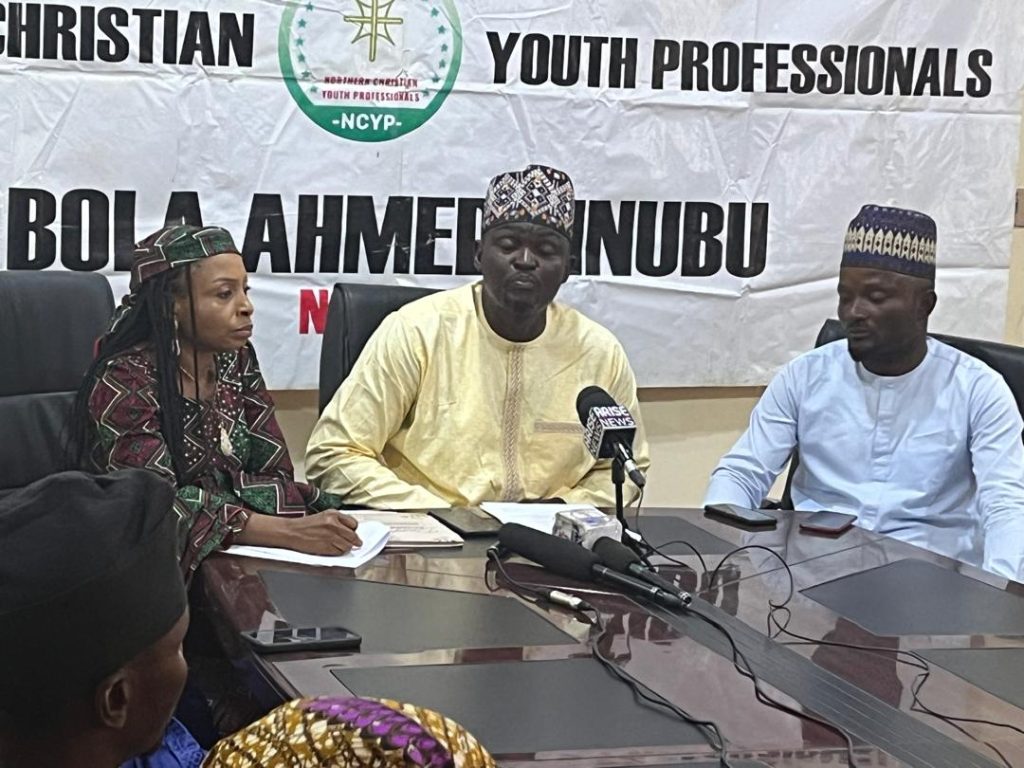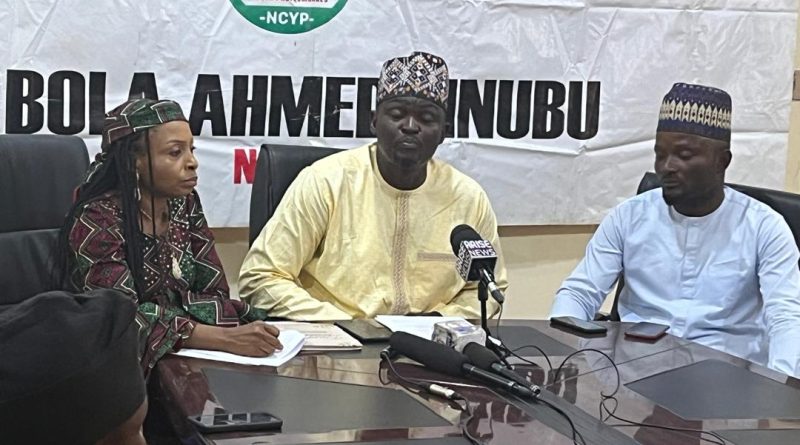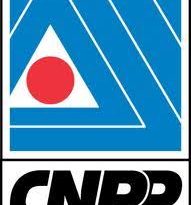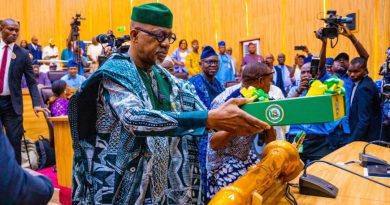Group To 19 Northern Governors: Proposed Tax Law Opportunities To Lift Millions From Poverty
By BUKAR BOLORI
Governors of the 19 Northern States have been advised to embrace the realities of the proposed new tax law by tapping into what it holds for millions of poor people in the region that could be lifted out of poverty.
The advice was given on Monday in Abuja at a press conference organised by the Northern Christian Youth Professionals.

The President of the association, Isaac Abrak flanked by other executive members at the press conference, said the northern governors need to draw on the positive of the proposed tax regime which planned to free millions of poor Nigerians from tax burden as well as small businesses which would stop paying taxes, noting that these two positive could breathe life into many businesses and make many people rich in the north of the country.
Abrak said: “We acknowledge that this shift presents unique challenges for northern states, which have for many years relied on the federal sharing the 50% VAT equally to all the states, and it is with these funds that the state governors run the states. As such a reduction in federal VAT revenue under this model could significantly impact the region.
“However, this is not a time to dwell on challenges alone. Instead, we urge our state governors to take this challenge as an opportunity to redefine the northern region’s economic narrative—a narrative rooted in independence, innovation, and resilience.
“For decades, northern Nigeria has been a cornerstone of the country’s economic history, from the era of the groundnut pyramids to its agricultural and industrial contributions. Today, we must harness that same spirit of enterprise and determination to develop the economy that this new VAT derivation formula will favour us too.
“One of the key ways the reforms will benefit the northern region is by creating an environment conducive to business growth and investment. With a reduced corporate income tax rate, businesses in the region will have more resources to invest in expansion, hiring, and innovation. This, in turn, will lead to job creation, increased economic activity, and a rise in living standards.”
He added that: “Similarly, this reform is sensitive to the plight of the common man, in this sense our northern Talakawas as it Exempts individuals earning N800,000 or less from paying income tax. Currently, if you earn a total of N800,000 annually, you are required to pay N84,000 out of this amount as income tax. But With this bill, you will not pay anything. So you see that the bill helps to fight poverty at the Talakawas level (masses).”
He equally explained that: “Also only those earning above N50 million get to pay 25% personal income rate. Under the current law, once you earn above N3.2 million you will be charged 24% income tax.
“Look at how the bill is also sensitive to small businessmen and women. It exempts small businesses from paying income tax. In this bill, small companies are defined as those with an annual turnover of N50 million or less. In the current law, small businesses are defined as those with a turnover of N25 million or less. What this means is that up to 90% of businesses in Nigeria will be exempted from paying income tax.
“Reduction of company income tax rate from 30% to 25% in 2026 for medium and large companies. Elimination of minimum income tax of 1% charged on the gross earnings of medium and large companies that did not declare profit. Only profit is taxed under the new tax bill.”
He said: “So if you look at the bill critically, you understand that while it takes from the rich more, it protects the poor.
“So this is why we are calling on our Northerner Governors and elites to look inward-our region is endowed with immense potential, including: A dynamic population rich in human capital and innovation.
“Leaders in industry, such as Aliko Dangote, who epitomize African industrialization.A thriving creative industry, led by Kannywood, showcasing the region’s cultural vibrancy and global relevance with a big presence on social media. Abundant arable land, positioning the region as a potential agricultural hub for Nigeria and Africa.
“To unlock this potential, we must act decisively: Develop Economic Plans: Our leaders must implement comprehensive short, medium, and long-term economic strategies to drive local development.
“Revitalize Key Industries: Textiles, leather, confectioneries, and automobile production must be restored to provide jobs and foster economic growth. The new Corporate Income Tax will help these companies to revitalize and grow.
“Address Security Challenges: Insecurity and terrorism, often fueled by religious intolerance, must be confronted through policies and programs geared at uniting the people. Once we secure our region, multinational investors will come in to invest because we have the population for their markets.
“Embrace Meritocracy: We must empower the brightest minds and talents, ensuring excellence drives progress.
“With these measures, the northern region can regain its economic vibrancy, generate substantial VAT revenue internally, and secure a thriving, self-reliant future.”
Abrak said: “This is our moment to redefine northern Nigeria—not as a region dependent on federal allocations or VAT generated from companies headquarters outside our region but as a powerhouse of productivity and innovation.
“This is the time for our states in the north to contribute resources to the centre just like any federating state from other states in the south.“Moreso there is also the Income Tax which proposes to make the rich pay more than the poor.
“We call on all northerners and Nigerians to rise to this challenge. It’s important to note that it’s not a correct perception that President Bola Ahmed Tinubu is trying to victimize the north with the Tax Reform Bill but rather trying to provide a conducive economic environment for robust economic boom in our region.”
He advised that: “Let us unite to support these reforms, seize the opportunities they present, and work together to build a brighter future for our region and our nation.”




